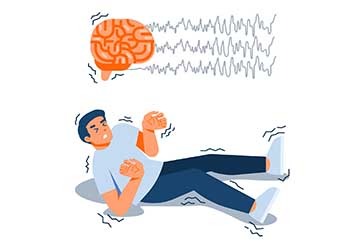 Book Appt.
Book Appt.
 Call Now
Call Now


Ataxia is a neurological disorder characterized by a lack of coordination in muscle movements, leading to unsteady gait, impaired speech, and difficulty with fine motor tasks. This condition can be caused by various underlying factors, and understanding its types, causes, and potential treatments is crucial for individuals affected by ataxia and their caregivers.
Types of Ataxia
Causes of Ataxia
Symptoms and Progression
Ataxia presents with a range of symptoms, which can vary depending on the underlying cause and type of ataxia:
Diagnosis and Management
Conclusion
Ataxia is a complex neurological disorder with a wide range of underlying causes. Understanding the type and cause of ataxia is crucial for appropriate management and support. With early diagnosis, targeted interventions, and ongoing research, individuals affected by ataxia can lead fulfilling lives and overcome the challenges presented by this condition.
SHALBY Sanar International Hospitals provides extensive medical procedures backed up with our state-of-the-art technology and a team of highly qualified & experienced clinical experts.

Patient from Iraq gets treated by Dr. Harnarayan Singh | SHALBY Sanar International Hospitals

15 year old Patient from Liberia gets treated by Dr Harnarayan Singh | Neurosurgery & Spine Surgery

Mrs. Khalida Khaleel from Iraq Overcomes Degenerative Disc & Grade 1 Spondylolisthesis

Successful Treatment of a Patient from Uzbekistan for Degenerative Disc Disease and Back Syndrome

Surviving Stroke: Bipasha Banerjee's Testimony on Timely Intervention

Successful Intraoperation Neuro Monitoring on patient Hasan from Iraq

Successful removal of Glioma using advanced machines

A multidisciplinary care worked wonders for Ms. Akhtamova from Tajikistan

Treatment for Brain Aneurysm - Al Qumairi Saeed Mohsen Awadh from Yemen
Our doctors pen down their research findings and experiences from time to time. Their words provide deep insight into the latest techniques, technologies and other advancements in healthcare. It provides expert answers to all kinds of health questions for real-life issues.
VIEW ALL




Since the day of its foundation, SHALBY Sanar International Hospitals is committed to provide comprehensive healthcare services. It regularly organizes awareness programs in its premises and encourages outdoor healthcare activities and camps with an intent to put focus on preventive healthcare.
VIEW ALL